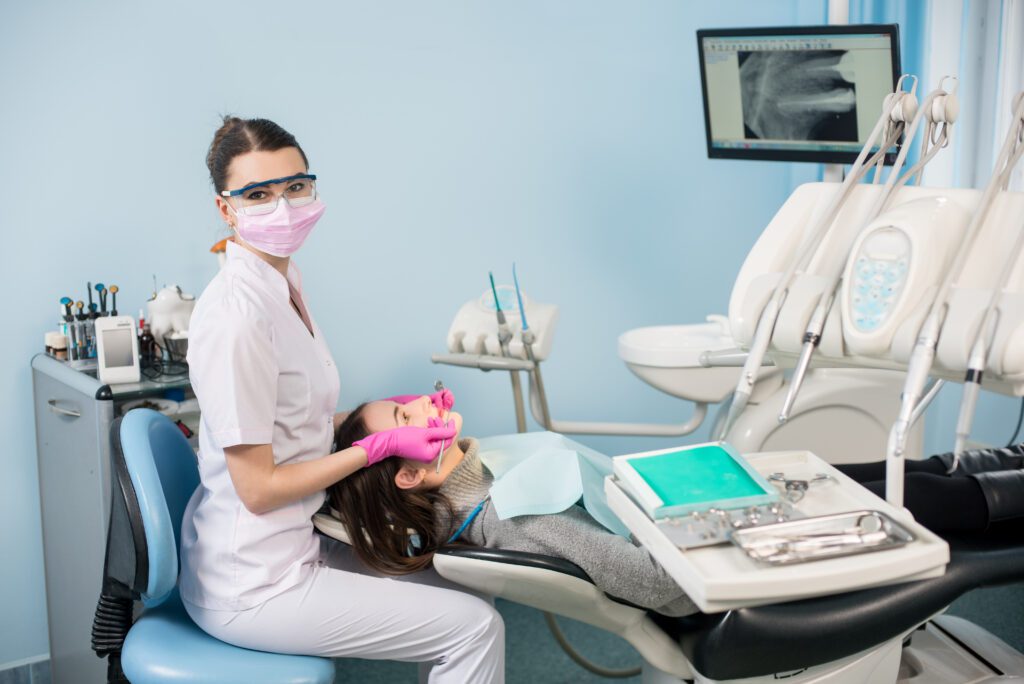At the heart of regulated dentistry in the United Kingdom stands the General Dental Council (GDC). As the independent regulatory body, its primary mandate is crystal clear: to protect patients and maintain the public's confidence in dental services. This isn't a passive role; the GDC actively sets the educational requirements for dental professionals, maintains the register of qualified practitioners, and, critically, sets and enforces the standards of conduct, performance, and ethics.
For every registered dental professional in the UK – from dentists and dental nurses to hygienists, therapists, technicians, and clinical dental technicians – understanding and embodying these standards is not merely a legal obligation, but a daily commitment.
This comprehensive guide will illuminate the importance of these principles, offer practical steps to seamlessly integrate them into your everyday practice, and help you avoid common pitfalls, ensuring you thrive in your profession while always prioritizing your patients.
Why the Standards of Practice are Non-Negotiable
The GDC's Standards of Practice are far more than just a regulatory checklist; they are fundamental to every aspect of your professional life:
Legal Obligation: Adherence is mandatory. Being registered with the GDC means you are legally bound to uphold these standards; failure to do so can lead to fitness-to-practice proceedings, potentially impacting your ability to practice.
Ethical Imperative: They define the highest ethical and moral conduct expected of you, guiding your decisions in complex situations.
Patient Safety & Trust: These standards are designed to ensure safe, high-quality care, directly contributing to positive patient outcomes and building crucial public confidence in the dental profession.
Professional Accountability: They provide a framework for accountability, ensuring that dental professionals are responsible for their actions and decisions.
Navigating the GDC Standards Document
The GDC Standards document itself is thoughtfully structured, typically outlining nine overarching principles supported by detailed guidance. It's crucial to remember this is not a static document; it's regularly reviewed and updated to reflect evolving best practices and societal expectations. Therefore, ongoing engagement with the latest version is essential.
The 9 Principles of the GDC Standards
Let's explore the fundamental principles that underpin excellent dental practice in the UK:
1. Put patients' interests first
This principle is the cornerstone of all dental care. It means prioritising patient well-being above all else, treating every individual with respect, empathy, and without discrimination. It also involves listening to their concerns and adapting your approach to their unique needs and circumstances. For instance, if a patient expresses significant anxiety about a root canal, putting their interests first means discussing all pain management options, offering breaks during the procedure, or even suggesting a referral for sedation dentistry, rather than simply proceeding with treatment as initially planned.
2. Communicate effectively with patients.
Clear and empathetic communication is vital. You must provide understandable information about treatment options and their associated risks, benefits, and costs, enabling patients to make informed decisions. This includes actively listening to their questions and concerns and ensuring accessible channels for patient feedback and complaints.
3. Obtain valid consent
Beyond just a signature, valid consent means ensuring a patient fully understands and voluntarily agrees to treatment. This involves providing sufficient information in a way they can comprehend, discussing alternatives, and clarifying their right to refuse or withdraw consent at any point. Meticulous documentation of the consent process is also key.
4. Maintain and protect patients' information
Confidentiality is paramount. You are responsible for ensuring that patient information is kept secure and confidential, adhering strictly to data protection regulations like GDPR. This extends to how records are stored, accessed, and shared, whether in digital or paper format.
5. Have a clear and effective complaints procedure
An accessible, fair, and transparent complaints procedure is essential. It not only demonstrates a commitment to patient satisfaction but also provides a vital opportunity to learn from feedback, improve service quality, and restore trust. You must ensure patients' concerns are acknowledged, listened to, and promptly dealt with, providing them with a constructive response.
6. Work with colleagues in a way that is in patients' best interests.
Effective teamwork and clear communication within the dental team are critical for seamless patient care. This principle covers appropriate referrals, efficient handovers, and fostering respectful and collaborative professional relationships that ultimately benefit the patient.
7. Maintain, develop, and work within your professional knowledge and skills.
This principle underscores the critical importance of Continuing Professional Development (CPD). You must actively engage in ongoing learning to keep your skills and knowledge up-to-date, ensuring you always work within your documented scope of practice. It also encompasses maintaining your personal health and demonstrating professional conduct.
These key areas for focused CPD are highly recommended for you:
Clinical Skill Enhancement & Updates refine your practical abilities. For instance, dentists can learn advanced composite bonding, dental nurses can refresh infection control, and hygienists can train in new periodontal therapies. You can find robust CPD through the British Dental Association (BDA), advanced clinical training from the Royal College of Surgeons of England (RCS Eng) - Faculty of Dental Surgery (FDS), and dental nurse-specific opportunities via the British Association of Dental Nurses (BADN).
Ethical Practice & Patient Communication: A CPD that is paramount for building trust and navigating complex interactions. This includes training on managing challenging behaviours, enhancing consent, or workshops on conflict resolution and empathetic communication. Resources like Dental Protection (MPS/MDDUS) provide ethical webinars, Local Dental Committees (LDCs) offer communication training, and the GDC publishes vital guidance and hosts webinars.
Safeguarding & Medical Emergencies: This CPD ensures your professional knowledge extends to protecting all patients, especially the vulnerable. This involves refresher courses in Basic Life Support (BLS), Immediate Life Support (ILS), or safeguarding children and vulnerable adults in dental settings. Look for accredited providers, often endorsed by the Resuscitation Council UK, for BLS/ILS. For safeguarding, organisations like the NSPCC or local authorities provide essential training.
8. Raise concerns if patients are at risk.
You have a professional and ethical duty to act if you believe patients are at risk. This includes raising concerns about the conduct, performance, or health of a colleague, or about conditions in the practice that could compromise patient safety. Understanding whistleblowing policies and protections is vital here.
9. Make sure your personal behaviour maintains patients' confidence in you and the dental profession.
This extends beyond the clinical setting. Your professional conduct, both inside and outside the workplace, including appropriate use of social media, must always uphold public confidence in the dental profession. It encompasses honesty, integrity, and avoiding any conflicts of interest.

Implementing the Standards: Practical Steps for Daily Practice
Translating the GDC Standards from paper to practice requires a proactive approach:
A. Regular Self-Assessment: Make it a habit to regularly review your own practice and compare it against each GDC standard. Utilise any self-assessment tools or checklists provided by the GDC or your professional association to identify areas for improvement.
B. CPD as a Cornerstone: View CPD not as a chore but as your most powerful tool for ensuring compliance and enhancing your skills. Choose CPD activities directly relevant to the GDC principles, such as communication workshops, infection control updates, or advanced clinical training. Remember to meticulously document all your CPD.
C. Exemplary Record Keeping: Embrace detailed, accurate, and contemporaneous record keeping as a fundamental aspect of good practice. Records should be clear, comprehensive, and easily accessible, serving as a reliable account of patient care and decision-making.
D. Team Briefings and Training: Ensure the entire dental team understands and adheres to the standards. Regular team meetings, internal training sessions, and open discussions about GDC guidance can foster a shared commitment to compliance and a culture of safety.
E. Handling Ethical Dilemmas: Develop a structured approach to applying GDC principles in complex patient situations or ethical dilemmas. Discussing these scenarios with senior colleagues or seeking advice from professional bodies can be invaluable.
Common Pitfalls and How to Avoid Them
Even with the best intentions, certain pitfalls can lead to non-compliance:
A. Complacency: The danger of assuming "we've always done it this way" or that existing practices are sufficient. Regularly review and update procedures.
B. Inadequate Record Keeping: This is a very common issue. Poor records can severely hinder your defence in a complaint or GDC investigation. Implement robust, consistent systems.
C. Communication Breakdowns: Misunderstandings with patients or within the team can lead to complaints and poor outcomes. Invest in communication skills training and foster an open dialogue environment.
D. Neglecting CPD: Failing to engage in ongoing learning can lead to outdated practice, skill decay, and potential fitness to practice issues. Plan and commit to your CPD.
E. Lack of Awareness of Updates: GDC guidance evolves. Regularly check the GDC website and professional association updates to stay current.
Conclusion
The GDC Standards of Practice are more than just a regulatory framework; they are the blueprint for truly excellent dental care in the UK. Your unwavering commitment to these standards is fundamental to ensuring patient safety, maintaining the integrity of your profession, and ultimately, building a rewarding and resilient career.
Embrace these standards as an ongoing journey of professional growth. Regularly review the full GDC Standards document, commit to continuous learning through meaningful CPD, and champion best practices within your team. By doing so, you're not just meeting your obligations; you're actively contributing to a dental profession that is trusted, respected, and always striving for the very best.
Ready to Join a Practice Where Standards Truly Shine?
At Verovian Dental Recruitment, we understand that true professional satisfaction comes from working where compliance, ethical excellence, and outstanding patient care are paramount.
We specialise in connecting dedicated dental professionals like you with practices that don't just meet the GDC's requirements, but actively champion them. Whether you're a dentist eager for a new opportunity or a practice committed to building a team of ethical and proficient talent, Verovian Dental Recruitment is your partner.
Register with us today to discover roles that align with your commitment to best practices and a culture of professionalism.




